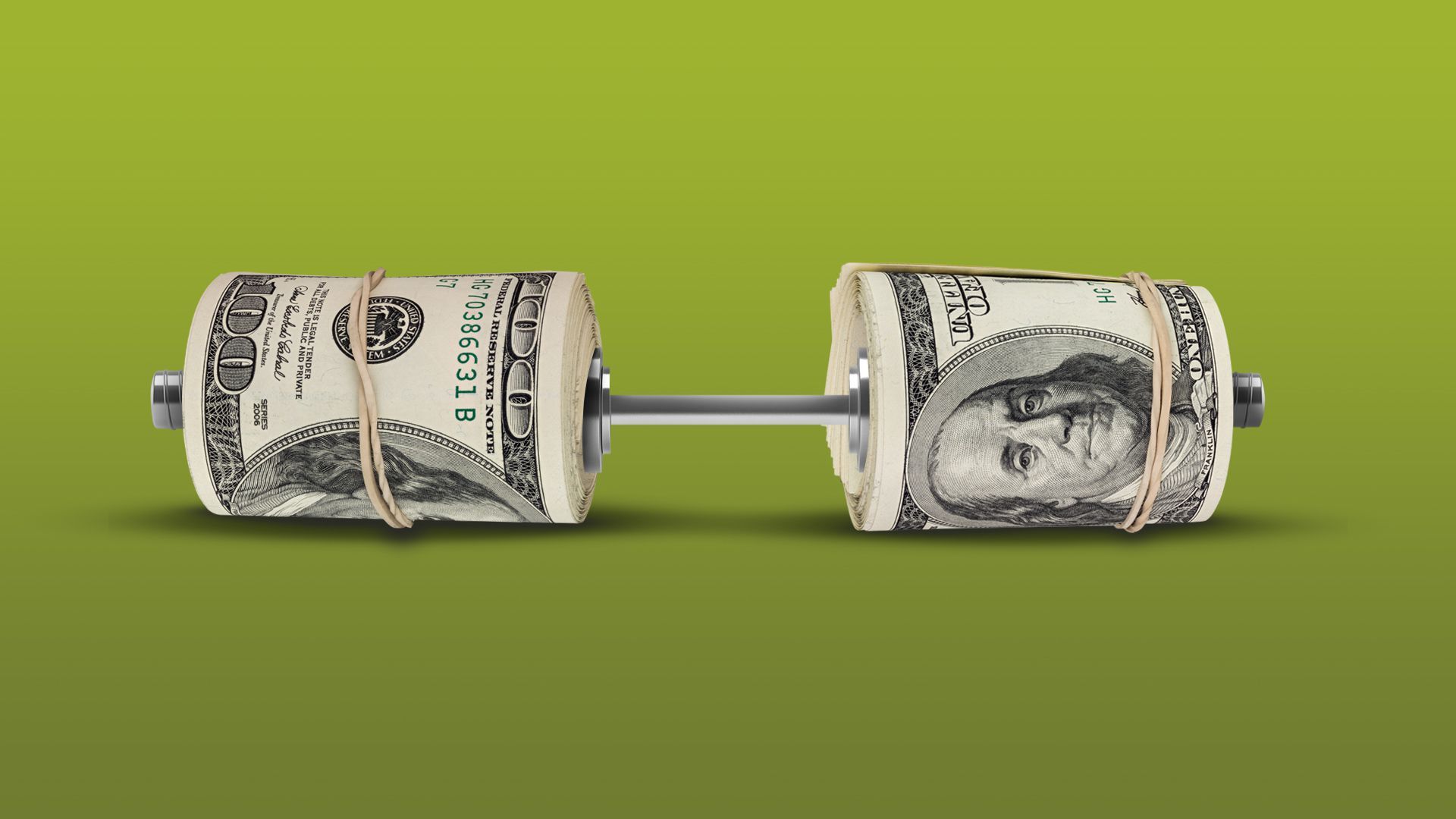The strong dollar might not actually be "wreaking havoc" around the world, as some headline writers would have you believe.
Why it matters: Large swings in the dollar — in either direction — tend to destabilize corporate and central bank strategies. Stability and predictability are good things. Still, the strengthening greenback is welcome news to many constituencies.
Foreign investors all have substantial exposure to stocks and bonds that are denominated in dollars — and the strong dollar has helped boost their local currency returns.
- Over the past 10 years, the S&P 500 is up more than 250% in foreign currency terms, if you look at how the the dollar has performed against a trade-weighted basked of currencies. By comparison, it's up only about 150% in dollar terms.
Foreign governments, frustrated by sluggish domestic economies, like the idea that their exporters will see higher revenues when their currencies weaken, thereby boosting growth.
- China, for instance, has pushed its currency down to a low of 7.2 yuan to the dollar, in an attempt to turbocharge exports.
- Europe has seen its currency weaken by roughly the same amount, much to the delight of its exporters. One euro is worth about 22% less than it was at the beginning of 2021; one yuan is worth about 13% less than it was as recently as March 2022.
- "The weakening of the euro, yen, pound, or renminbi improves the competitiveness of other major economies, offering support for their economic activity," writes Stephen Dover of the Franklin Templeton Institute.
The Federal Reserve, tasked with lowering inflation, is happy to let the strong dollar do some of the heavy lifting.
- Imported goods cost less in dollar terms, causing disinflation.
- The profits of multinational corporations also decline in dollar terms, both because foreign revenues are worth less and because U.S. companies find it harder to compete with companies whose prices are denominated in euros or yuan. That might not be great news for the companies in question, but it does help the Fed slow demand in the economy.
What they're saying: "At this juncture, where inflation seems much too high and much more out of whack relative to target, U.S. policymakers are probably looking at the stronger dollar and are quite pleased with the help they are getting on the inflation front," writes Kamakshya Trivedi of Goldman Sachs.
The bottom line: The last time the dollar was this strong, in 1985, the world's governments made a concerted effort to weaken it. This time around, that's highly unlikely to happen.


댓글 없음:
댓글 쓰기